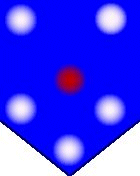What’s the craic?” is a common Brit-on-Brit saying, but in “mixed” company it’s like, “What’s the what?” Here’s a look at Ten Baffling Words Said by Brits.
1. Craic = noun; news/what’s up, “What’s the craic?” This term originated in England (crack), moved to Northern Ireland (changed to Gaelic spelling craic) and then back to England retaining the Irish spelling. Got that? Either way, it’s pretty popular now and is a means to start up a conversation or inquire about news, gossip and anything that falls between.
2. Chuffed = adjective; pleased, “I’m chuffed!” In some uses chuffed means “being pleased with yourself.” Why not? If you’ve done a job well done, then why not stand proud? The original meaning of the term was “puffed with fat,” as in “having a big head.” However, if someone else is patting you on the back, they could say, “I’m chuffed for you.”
3. Knackered = adjective; tired, “I’m really knackered and need a kip (nap).” This word once meant “tired after sex,” but it’s evolved into just plain tired. So, no blushing is called for if hearing or using this word. If you say you’re tired, you might be sleepy. If you’re exhausted, you might be drained. Knackered gets the point across, you need a sit down.
4. Minging = adjective; foul or ugly, “I went camping and wore the same knickers for three days, they’re definitely minging.” This word has been popular in Scotland and England since the 1950s. Apparently it has just caught on in the past five years in other parts of the U.K. The second “g” is silent. It will definitely bring up a mental image, but just what image is that??
5. Pissed = adjective; drunk, “He’s pissed and should drink some water.” Even if you know the word pissed can mean drunk, it still might be confusing if someone says, “Are you pissed?” And you’re like, “No, I’m fine.” The person comes back at you saying, “You’re acting a little pissed.” It’s like, “Well, I’m a little agitated but I’m not mad or anything?” This word will be especially baffling if you are indeed “pissed” as in “intoxicated,” “Ah, you mean pissed!! Yes, I have been overserved.” Hiccup!
6. Pull = noun; the prowl or on the lookout for some lovin’, “I’m on the pull tonight.” Or, verb; “Did you pull last night?” This term came from Middle English pullen, turning the literal meaning “to pull” into slang meaning “pulling” someone home with you. If your friend says they’re on the pull it means they’re looking to get lucky.
7. Radge = noun; a crazy person: “He was starting trouble and acting like a radge.” Or, adjective; “That’s a radge t-shirt.” If a Brit turns to you and says, “You’re mad,” it’s probably nothing to lose sleep over. It most likely means, you’re ridiculously funny, and I like it. The word “mad” is thrown around left and right. But “radge” actually means mad, as in “insane,” leaning toward violent. Not a compliment.
8. Row = noun; argument, “I feel bad, we had a row when the bill came.” This isn’t pronounced row, as in “row a boat.” The word rhymes with wow and means “a conflict or argument with another person.” Usually it’s not too heavy and both parties involved can just let it go or assume you will make up soon if it’s necessary to clear the air.
9. Treacle = noun; sugar/sweetheart, “How’s tricks treacle?” “Treacle” is usually a term of endearment for a good looking woman but it depends on who it’s coming from. If your lad says it and gives you a squeeze, it’s a nice thing. If it’s said to you on the street, it’s not necessarily endearing, i.e. “‘Ello treacle! Oy, too good for us duchess?”
10. Waffle = verb; ramble, “Stop waffling about and get to the point.” In this scenario, basically you are talking unendingly. If someone says you’re waffling then it might be best to get back on track with your story.
Battle Maps for Miniature Wargames by Henry Hyde
-
Henry Hyde has a well-deserved reputation for the maps he has produced for
the magazines he edited (BATTLEGAMES and MINIATURE WARGAMES WITH
BATTLEGAMES) ...
39 seconds ago








.jpeg)




















































5 comments:
two peoples separated by a common language....)
Not surprising (being a colony) we use a lot of those in Australia as well.
PUBLIC SAFETY NOTICE: For those non UK readers considering a visit to our shores I should point out that some of these words are very regional and do not 'travel' very well. What is a jolly colloquialism in one area can easily start a fight in another!
Dan and we yanks that grew up on Monty Python are also somewhat tainted....)
Tim we have a list of similar
complexity here, I'm a New Yorker living in Texas, believe me adjustments had to be made!
Post a Comment